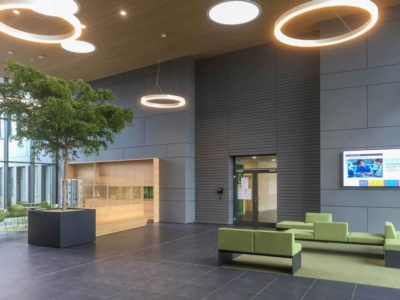




You decided to build a new house? Before you embark on this beautiful project, ask yourself the right questions to avoid potential difficulties and financial drifts. Anticipate problems that may occur along the way, and check if you are in good standing at the administrative level by relying on our guide.
Administrative procedures
Before starting the construction of a house, you will need a building permit, also called a building permit. Without it, you may have to interrupt or even cancel the work. This document contains information about you and the exact geographical location of the land, as well as the details of the proposed works. You can get this request from the municipal administration of the territory where the land is to be built. After obtaining this authorization, you will commit to begin the work within one year. If not, you will need to submit a reasoned request to extend the deadline. Better to do it in advance, but not too much!
Before you start building your house, make sure that the floor you are going to build on is in good standing. Order a PEB study to check the stability and sanitation of the soil. Once you have permission to build, you can choose between managing the building yourself or hiring a contractor. Keep in mind that you will need to monitor the daily progress of the job.
The choice of the entrepreneur is not an easy task. For added security, opt for a contractor offering financial and legal guarantees to his clients throughout the duration of the project. In addition, be aware that the latter must provide the main contractor with guarantees relating to the construction: completion guarantee, delivery guarantee ... All these guarantees are included in a contract. The completion guarantee is covered by insurance cover. You can also take out additional insurance. Property damage insurance will cover you in the event of a construction defect, which could compromise the solidity of the house or make it unfit for habitation.
Anticipate financial drifts and other difficulties
When setting your budget, did you take into account all the parameters? If the property is built on land in a subdivision, you should not have to incur additional charges for the connections. On the other hand, if you build on an isolated ground, the connections to the mains, the water and the sewers will generate additional costs. The installation of meters (water, electricity ...) and cables, as well as any taxes, are also to be taken into account when setting your budget for the construction of your house. The cost can vary greatly depending on parameters such as the distance of your home compared to the facilities, the state of the ground, the power of the electricity network, the need to dig ...
Another element you will need to consider when calculating your budget: the unexpected. During the construction project, all the attention is focused on the choice of materials and the development of plans. During construction, you may decide to introduce changes: a more functional kitchen, stronger door handles ... The sum of all these small changes can quickly weigh on the total cost. Before taking the plunge, take the time to analyze the house plans and the big equipment. You must be fully satisfied, as it will be difficult to change later. Have you planned enough coins? It is easier to cut down a wall than to add one. In the case of construction in a subdivision, have you properly assessed the restrictions and obligations?
The choice of a boiler is one of the other fundamentals. Beware of inexpensive electric boilers with high running costs. If your home is well exposed, why not opt for solar panels? You will also find on the market sophisticated solutions combining solar and gas or fuel. It is finally possible to think further ahead by anticipating future expenses related to the operation of your home, such as local taxes.